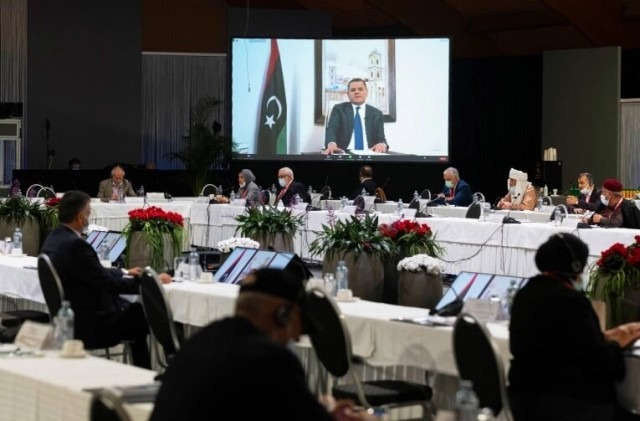Speaking in an interview with the website of the Strategic Council on Foreign Relations, Jafar Qanadbashi said: Last winter, a panel of 75 representatives from the two Libyan governments, as well as some other Libyan personalities, was formed four of whom were elected as the officials in charge of establishing the transitional government. The four are Prime Minister Abdul Hamid Dbeibeh and three members of the Supreme Presidential Council, including Mohamed al-Manfi.
Noting that the main mission of the government, which began its work in Libya in late March last year, was to hold parliamentary and presidential elections, Qanadbashi said: One of the most important steps that the transitional government took at the beginning of its term was to form a cabinet by receiving a vote of confidence from the Libyan parliament.
He also believes that this government should be considered as the result of an unwritten agreement between the two previous Libyan governments and also the result of an agreement between the two groups of Western and regional governments that considered the continuation of civil war in Libya harmful to advance their goals and failed to find a way for their full control over entire Libya.
According to the expert, what has now undertaken the task of holding parliamentary and presidential elections in Libya as a transitional government has the relative and implicit agreement and support of a number of internal forces and as it is the result of the UN efforts for state-building in Libya, it is approved by this international organization and therefore is moving towards gaining international legitimacy.
Regarding the problems and obstacles facing the transitional government, Qanadbashi said: There are several problems on the way of the transitional government of Libya, part of which is related to the interior of the country and originated from the wars and internal conflicts that have lasted for about 10 years and another part is related to the differences, especially the fierce rivalry between the Western and the regional powers over Libya that still continues in different forms.
He continued: Therefore, at present, the Libyan transitional government, in addition to having to deal with the problems over the administration of the internal affairs of the country and at least provide for the necessities of a normal life and establish a calm situation, should inevitably think of the presence and stay of the militias backed by foreign governments in that country.
Referring to the fact that most of the forces have been sent to Libya through the Turkish government to support the former government of national unity led by Faiz Siraj, he said: They are based in parts of the west and center of Libya.
Qanadbashi continued: Since the beginning of its activity, the officials of the transitional government have been constantly emphasizing withdrawal of those forces, which have been mainly dispatched to Libya from Syria, and are urging the Ankara authorities to expel those militias who are blocking the upcoming elections in Libya.
As for Turkey’s view of the developments, he referred to the dangers that forces under General Haftar could pose to Ankara’s interests in the Mediterranean as well as in North Africa, and said the withdrawal of Turkish troops from Libya is possible when the risks threatening interests of that country are disappeared.
Qanadbashi described another danger that threatens the country’s parliamentary and presidential elections, set to take place in late December this year, as the threat of interference of Western embassies and continued: Of course, European governments have been formally asked to refrain from interfering in the upcoming elections in the country and refrain from pursuing interventionist policies that may affect the outcome of those elections.
In conclusion, he said: After about 10 years, the Libyan people have experienced different conditions over the past three months, and now there is the hope in the country that the Libyan transitional government, also known as the government of national unity, will provide the necessary grounds for the establishment of an independent government based on the votes of the people. In this regard, however, the Islamists and many Libyan nationalist figures are concerned about secular and anti-religious tendencies as the key elements in the transitional government.










0 Comments